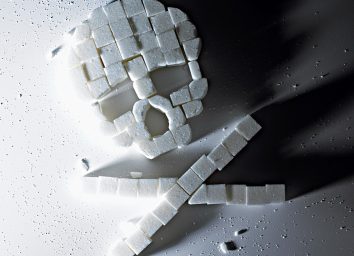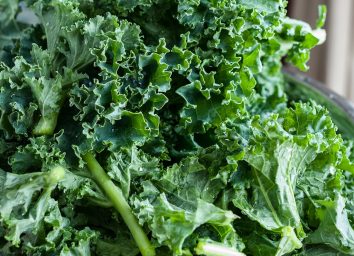10 Health Tips You're Taking Too Far
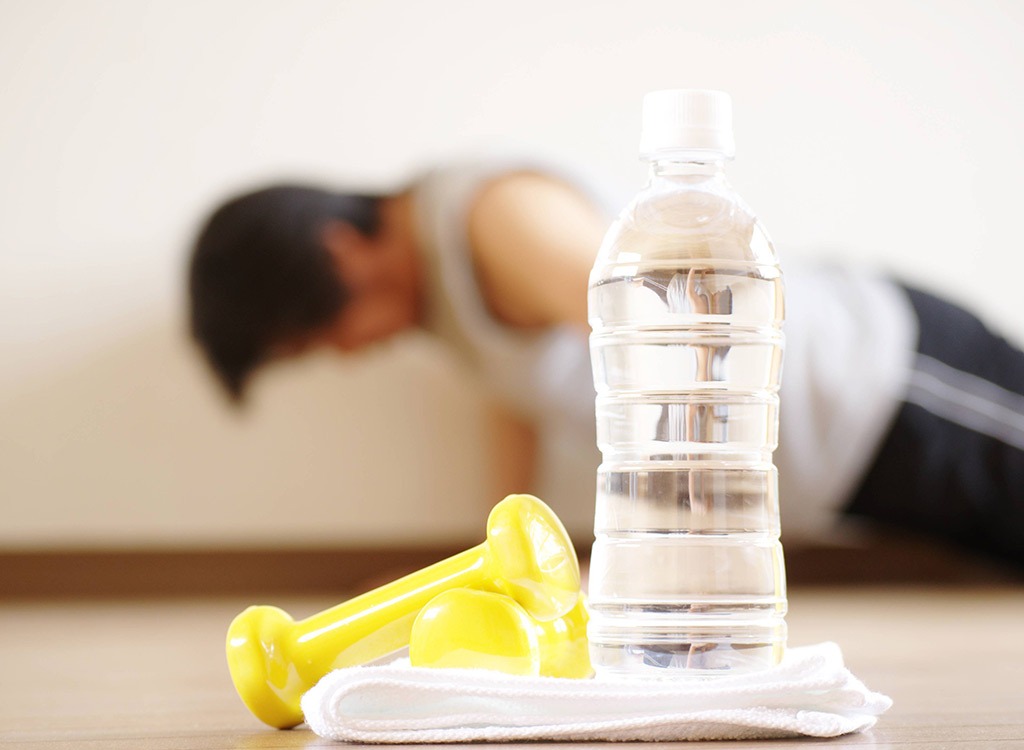
The health world can be a confusing, mysterious place. There's so much information out there and it can be overwhelming to know which direction to go in. So, why not just take a few, easy diet tips and do them as much as possible? Right?! Wrong. Moderation is key when it comes to a healthy life and a slimmer body. It is possible to overdo things even if they've earned a "weight loss friendly" badge or a "diet" label. If you feel like you've put your heart and soul (and body) into your healthy living plan, but the scale still won't budge, you might be overdoing things. Find out if any of the below apply to you and then don't miss these 30 Weight Loss Tips Better Than Counting Calories.
You're Drinking Too Much Water

Read any diet book, ask any nutritionist—hey, just scroll through our website! We can guarantee that you will repeatedly find the same tip over and over: drink more water. We do believe in this tip through and through since water boosts your metabolism and keeps your body functioning properly, but we're here to warn you that it is possible to drink too much water.
A recent study out of the Clinical Journal of Sports Medicine warns that over-drinking H20 can shock the kidneys by flushing out all of your electrolytes (aka salt). This causes your cells to swell which results in dizziness, nausea, and sometimes even death! We're not trying to scare you. We love a tall drink of water to help kick your weight loss into high gear, but we just don't want you to overdo it. Instead of constantly chugging H20, simply get in tune with your body and sip when you're feeling thirsty and before meals. That way, you'll provide your body with the water it needs without drowning your kidneys! For a delicious, nutritious way to drink water responsibly, check out our 50 Best Detox Waters for Fat Burning and Weight Loss.
You're "grazing" All Day
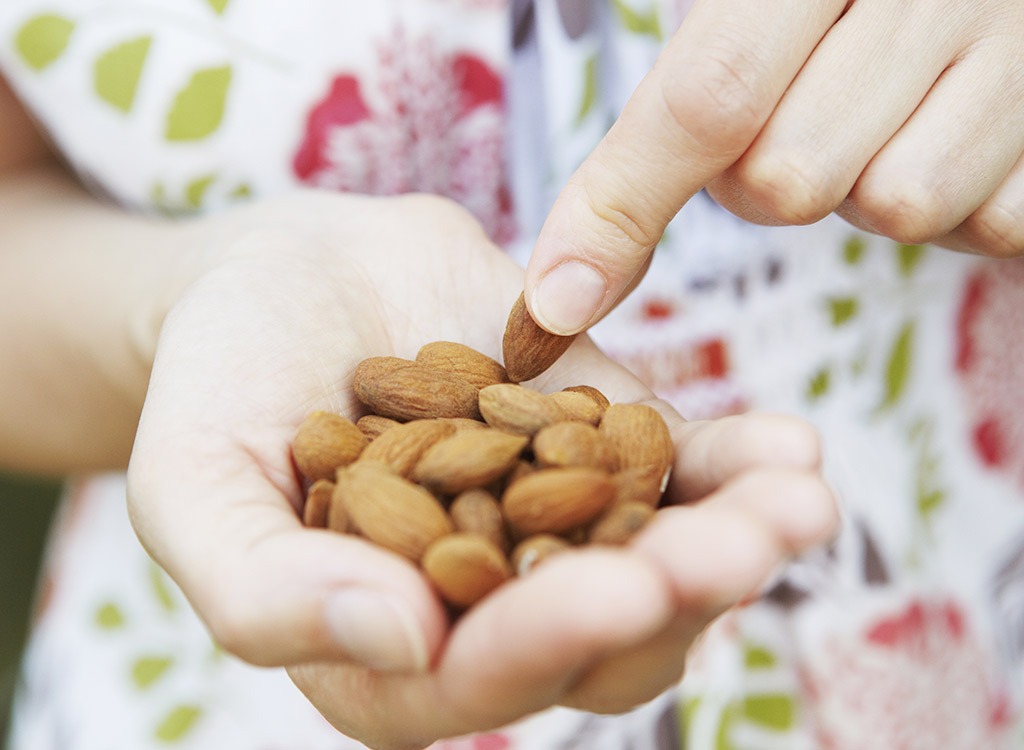
A recent diet trend that has gained popularity is the "many small meals a day" plan. The idea is that blood sugar levels will remain stable all day, you will stay in calorie-burn mode even as you sit at a desk, and you'll never get hungry enough to overeat. Sounds great right? Not so fast.
New research out of journal Cell Metabolism shows that grazing may not be all that it's cracked up to be. The study found that those who consumed food for fewer hours during the day lost way more weight than those who ate over extended periods—especially into the night. We would never hold you back from a healthy snack if you're hungry! But don't go out of your way to keep chomping all day; it may only make your jeans tighter.
You're Restricting Too Much
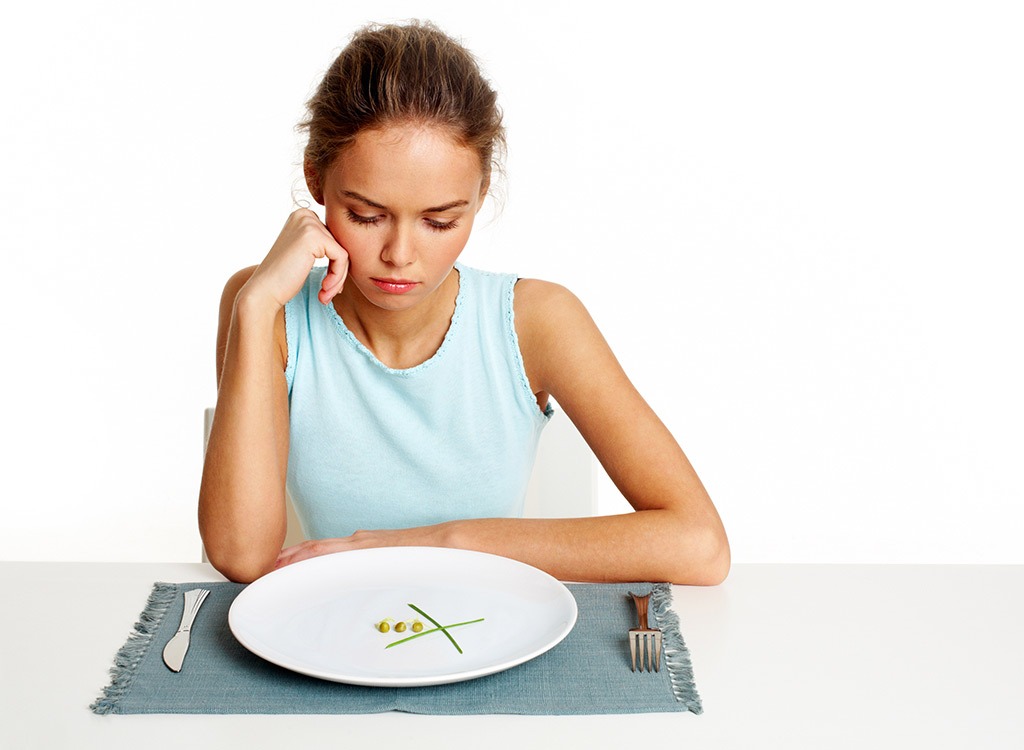
The diet industry has taught us that eating less will make us lose weight. It's also taught us that eliminating entire food groups like carbs and dairy will help us get the body of our dreams. We wish the diet industry would cut all this confusion! Cutting major calories and cutting out entire food groups might help you cut the weight in a flash, but we can guarantee that those pounds will creep back on in the long run. When you eat less, your body goes into "starvation mode." Instead of burning fat for energy, your body starts storing it since it's unsure about the next time it will get fed a nourishing meal. Plus, your body becomes ravenous in this mode, meaning your brain wants you to eat anything and everything in sight in order to store up for the next fast. Isabel Smith MS, RD, CDN, registered dietitian and founder of Isabel Smith Nutrition says to "aim for three daily meals and one or two snacks throughout the day to keep blood sugar balanced and metabolism going strong." This will ward off "starvation mode" and help you lose weight in the long run. Yes, that's right, eat more to way less. Just make sure you're eating filling, nutritious foods like these 25 Best Foods for a Toned Body.
You're Over-exercising

Exercise and a healthy diet are two treadmill steps in the right direction towards weight loss. But— yes, you guessed it— you can outdo exercise, too. Exercise is a stressor on your body and when your body is stressed, it releases a hormone known as cortisol. A recent study out of Yale University found that when cortisol production is in overdrive, it can promote weight gain, particularly in women. However, cortisol not only causes your body to store fat, but it also encourages you to reach for sugary, fatty foods to restore energy levels. This is a double whammy for weight loss! So, instead of hitting the gym day after day, take a few days to relax. Or, if you can't bear the thought of being still, do some stress relieving exercises like yoga or a leisurely walk. This will keep you active, stress-free and fat-free! Oh, and for some healthy foods to help combat stress, check out these 22 Best and Worst Foods for Stress!
You're Eating Too Much Fruit
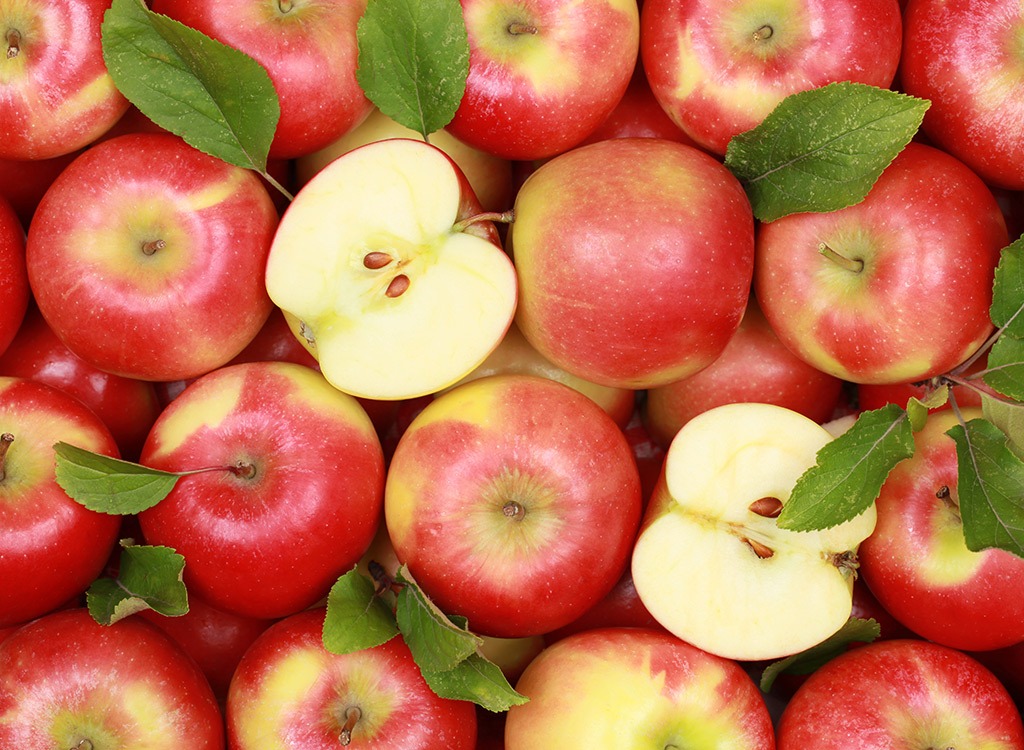
Eating more fruit when adopting healthy habits seems like a no-brainer, right? I mean, fruits offer all sorts of vitamins and antioxidants and they're one of those high fiber foods that are essential for weight loss. But fruit and weight loss may not be as apples to apples as we once thought.
Here's the bitter truth: while eating fruit is so much better than downing a Coke or a pack of M&Ms, fruit still has sugar in it that could cause weight gain. No, eating a banana with breakfast and an orange as a snack later won't do any harm. It's when fruit becomes the main event in your diet that you might need to take a step back. Fruit is comprised of a sugar known as fructose that acts like any other sugar; when you consume too much, your blood sugar rises. This overflow of sugar in the blood causes your body to store it as fat with the intention of tending to it at another time. But if you're constantly consuming fruit, your body will never get the chance to burn it, making it impossible to lose weight. We love to love fruit just as much as the next person, we just don't want you to go bananas with it! For healthy foods to work into your diet that isn't fruit, check out these 30 Foods That Melt Love Handles.
You Have a Go-to Workout
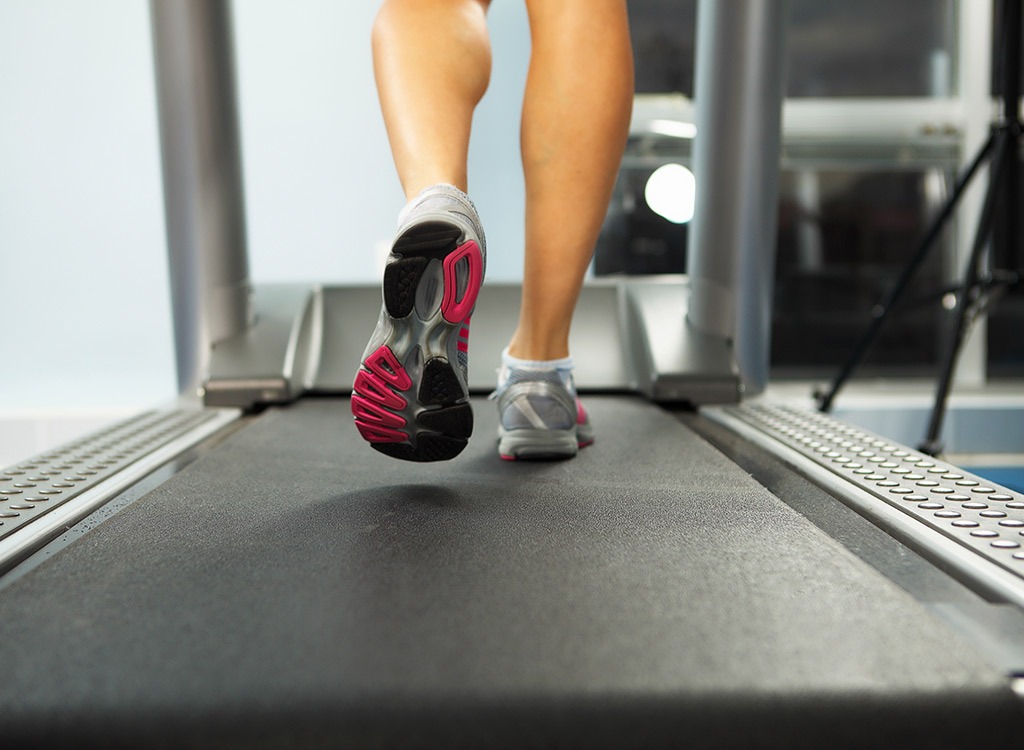
For years, extended cardio was the weight loss exercise for weight loss. Working out always meant going for a long run or hitting the gym to spend upwards of an hour on the elliptical. However, recent research out of Australia found that mixing in high-intensity interval training (all out intensity for a short spurt of time, then rest, then repeat) is a super effective weight loss tool.
But it's not just HIIT that's the key to fitness; it's variety in general. Taking a few days off from your standard workout plan to take a pilates class, hit the free weight section at the gym, or play a sport will keep your muscles challenged since you'll be working all different parts of your body. More muscle means more calorie burn throughout the day, so go ahead and mix it up! And be sure to refuel with one of our favorite protein shake recipes after your workout.
You Weigh Yourself Constantly
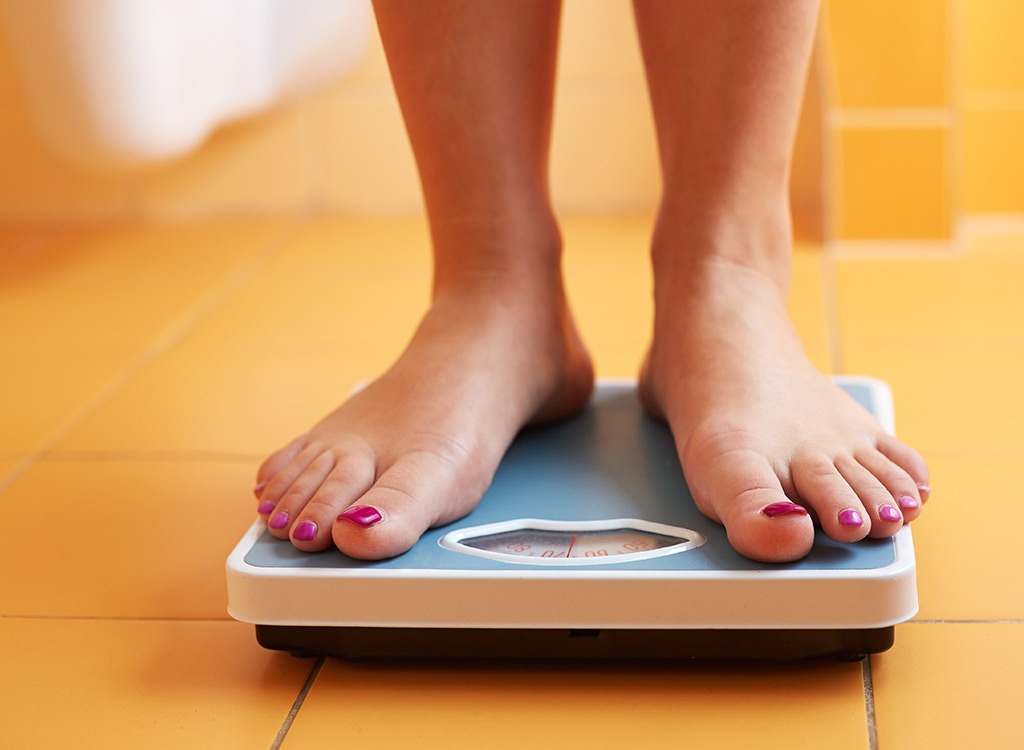
Many people think that you can't successfully lose weight if you're not tracking your weight. This is half true. Yes, weight loss means knowing how much weight you lost compared to where you started, but overdoing it on the scale is a surefire way to set you back big time. Body weight is something that naturally fluctuates. Everything from time of day to body temperature to body composition (i.e. muscle weighs more than fat) can tip the scale in one direction or the other. This means that when you step on the scale to find that you've suddenly gained five pounds, you're going to get discouraged and you might throw in the towel. The reality? Those five pounds probably mean one thing and one thing only: absolutely nothing!
Don't believe us? Take it from Jillian Michaels, the queen of toned bodies! Michaels suggests stepping on the scale once a week (always at the same time and day) to avoid random error and to avoid getting discouraged from seeing a few additional pounds even after several days of hard work. Instead of obsessing over numbers, get hooked on how you feel and how your clothes fit. This is a much better gauge of your health and fitness progress than any scale!
You're Snacking on Protein Bars
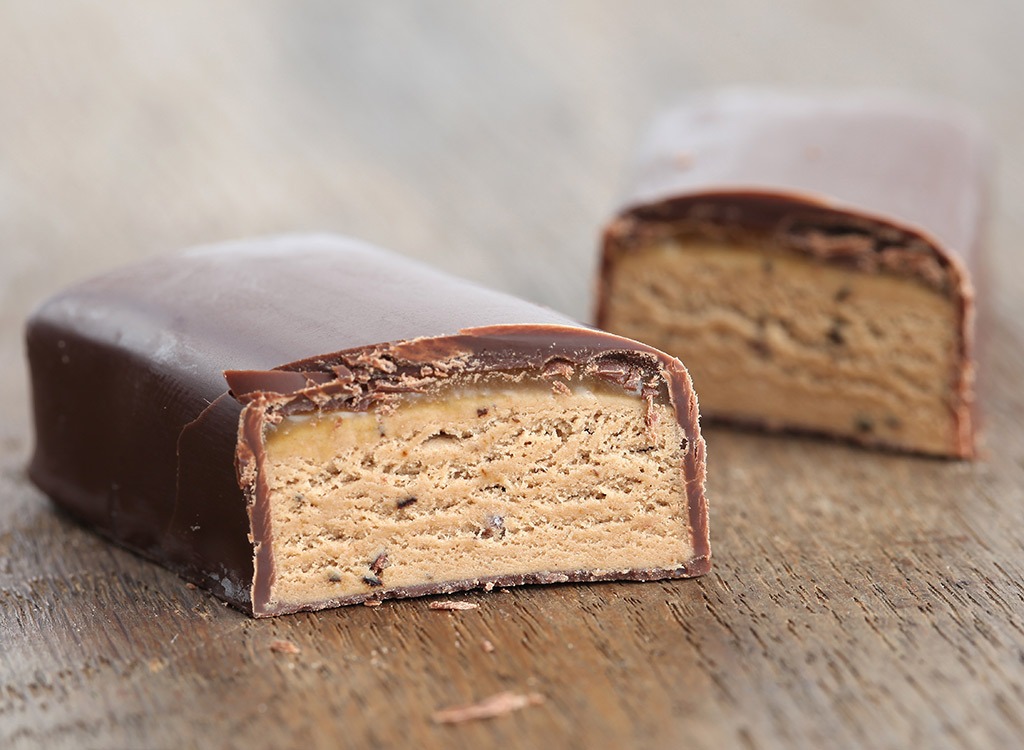
A recent study out of Spain found that those that consume more than their recommended daily intake of protein are more likely to be overweight over time. Don't get us wrong; with its long-term fullness factor and muscle-boosting qualities, protein is an essential part of a successful weight loss plan—but only if used correctly. The daily recommended intake of protein per day is 56 grams for the average man and 46 grams for the average woman. Many people wake up, down some eggs, finish their workout with a protein shake, pack chicken into their lunch salad, and then finish off the day with a steak for dinner. However, one small breast of chicken has 27 g of protein, meaning just two would overdo it for women on the day. The weight loss world is protein-obsessed and it's clear to see how easy it is to over-do it.
The problem with protein bars is that they're often marketed as weight loss tools but they are anything but that! These bars are usually packed with sugar and artificial ingredients, the perfect combo to pack on the fat. To get an appropriate amount of protein without the added sugar and additives, check out this list of 12 Best Protein Bars—Ranked!.
You're Eating Too Much Fiber
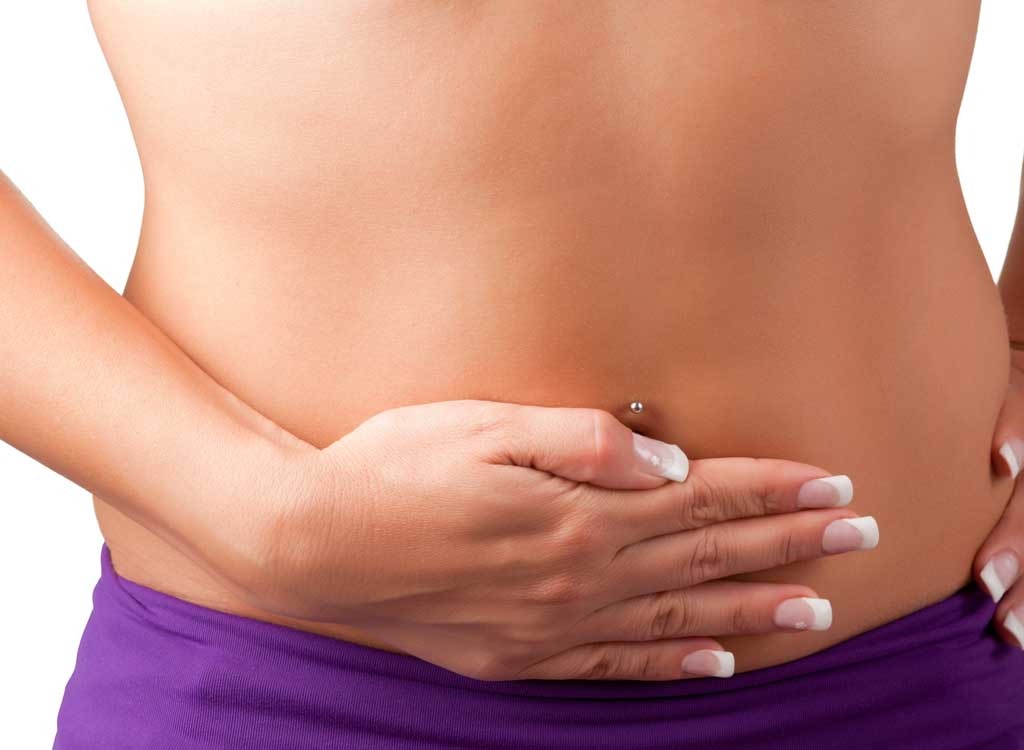
Fiber is protein's weight loss cousin. They are both hailed as health heroes for their ability to fill you up without filling you out. In addition to low-calorie fullness, fiber helps keep your digestive system running smoothly and even lowers your risk of heart disease. But like protein, it can really mess with your body when consumed in excess because eating too much fiber interferes with mineral absorption. This means things like iron (essential for blood health) and calcium (essential for bone health) aren't absorbed into the body to help keep your body buzzing and healthy. When you eat too much fiber, you're also likely to suffer from abdominal pain, bloating, and gas—leaving you uncomfortable for hours after your last meal and making all that extra broccoli you ate so not worth it.
Your Diet is Too Liquified
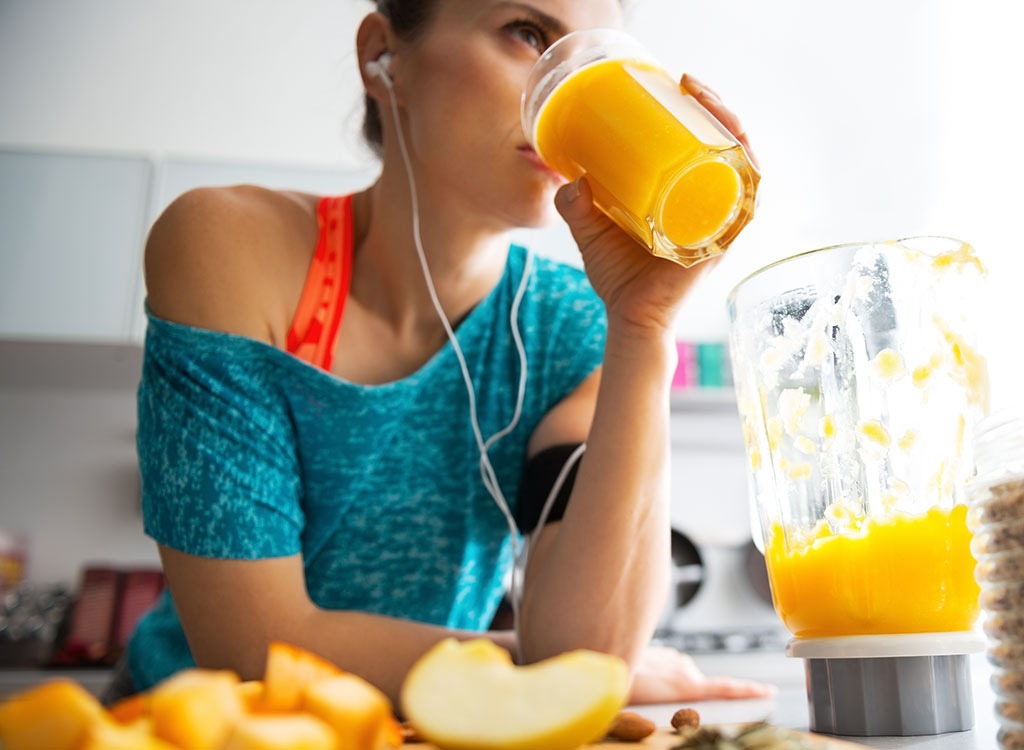
First and foremost, humans have been living for a very long time without "cleansing" or "detoxing". Believe it or not, the body is actually pretty good on its own at getting rid of toxins and waste. Our kidneys naturally filter our blood and our livers naturally eliminate toxins. But in recent years, health food has become trendy and that trend has spawned many diet fads that actually do way more harm than good. One of those is juicing. The idea behind juicing is to squeeze out all the nutrients in fruits and vegetables to get a low calorie, nutrient-dense meal. In actuality, these juices are a low protein, low fiber, high sugar meal. If you've been paying attention, you know that foods high in sugar spike blood pressure and ultimately cause you to gain fat.
Plus, juices are so low in calories that they send your body into that "starvation mode" that triggers your body to store food as fat and to binge eat whatever food you can get your hands on next. While hailed as the symbol of health, juices actually are weight-gain traps. So, trade in your liquid lunch for one of these lunches made from solid, wholesome foods for sustainable, successful weight loss.
